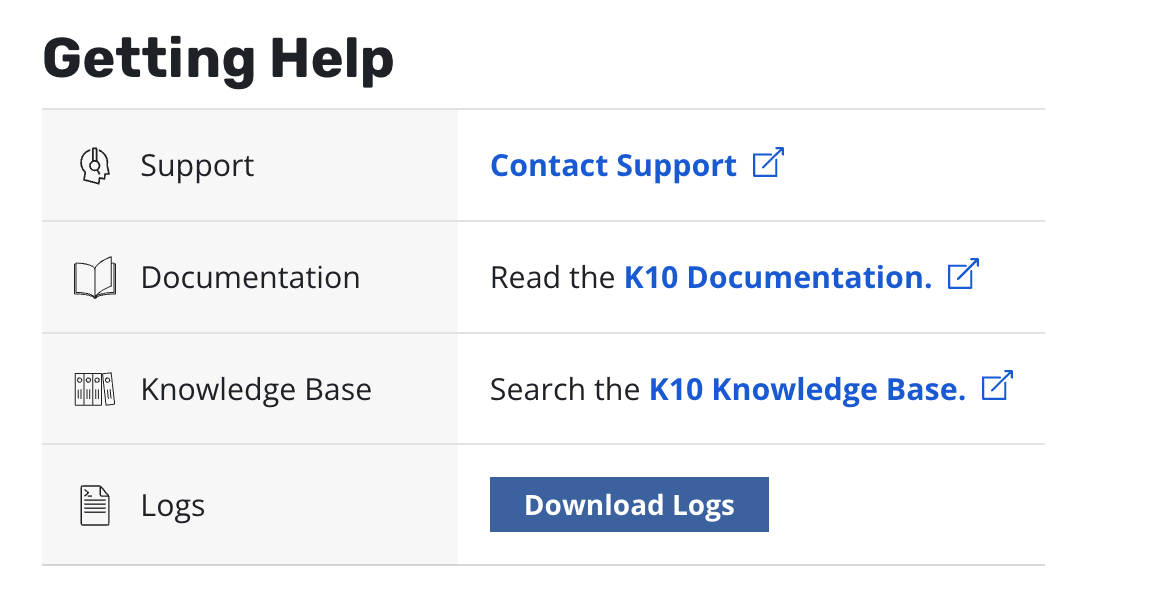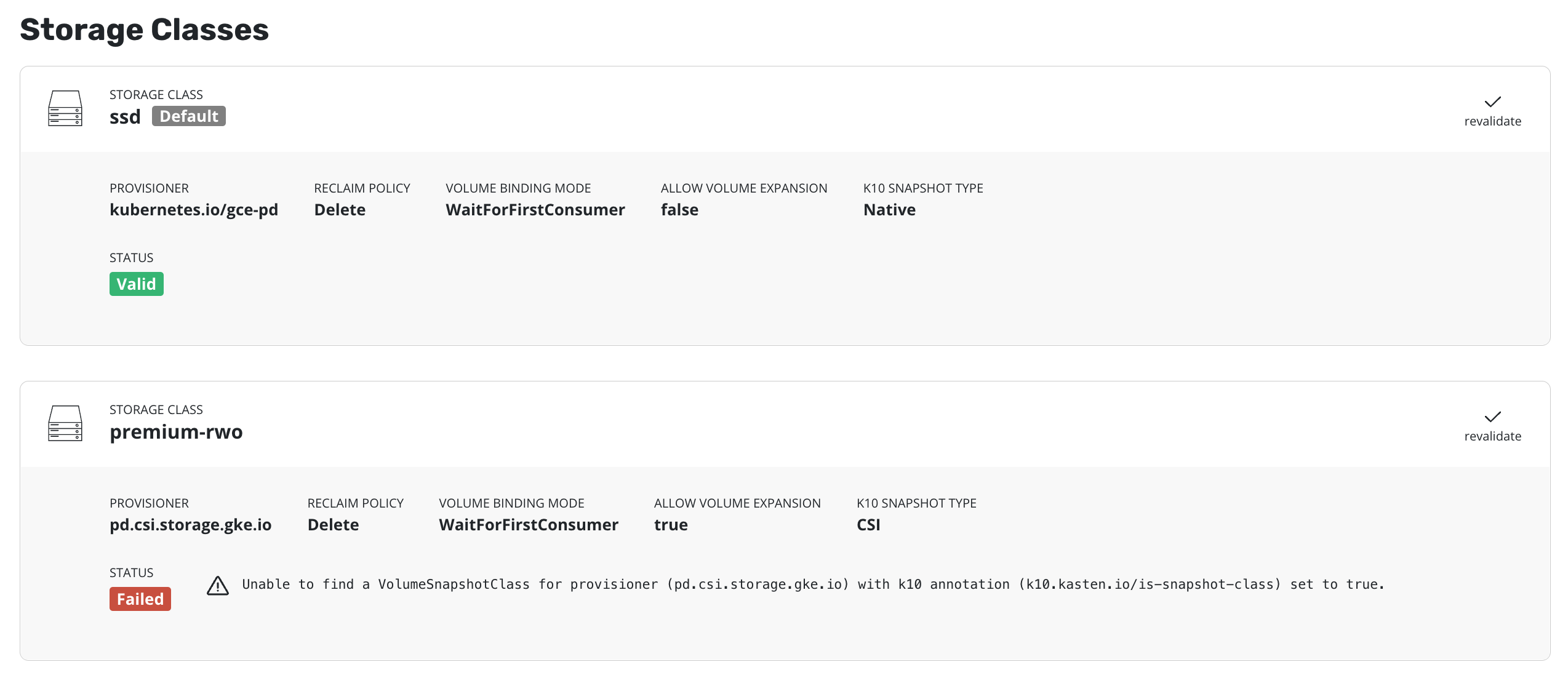Support and Troubleshooting
If you have questions or need support, please refer to Kasten K10 Community Support or open a case via https://my.veeam.com.
Supported Kubernetes Versions
K10 currently supports deployments running on the following certified Kubernetes distributions and respective OpenShift versions:
Kubernetes |
RedHat Openshift |
Notes |
|---|---|---|
1.27 |
Respective OpenShift version is not supported yet |
|
1.26 |
4.13 |
|
1.25 |
4.12 |
|
1.24 |
4.11 |
Gathering Debugging Information
Admin users running 4.5.7 or later can get support logs from the
System Information page under the Settings menu in the
navigation sidebar.
Alternatively, if you run into problems with K10, please run these commands
on your cluster as a first step to get information to support. The script
assumes that your default kubectl context is pointed to the
cluster you have installed K10 on and that K10 is installed in
the kasten-io namespace.
$ curl -s https://docs.kasten.io/tools/k10_debug.sh | \
bash;
By default, the debug script will generate a compressed archive file
k10_debug_logs.tar.gz which will have separate log files
for K10 services.
To gather K10's Prometheus statistics the script will create a port forward
using the port 9090 in the host where the script is executed.
If you installed K10 in a different namespace, want to log to a different file or want to use a different local host port to gather statistics, the options to the debug script are:
$ curl -s https://docs.kasten.io/tools/k10_debug.sh | \
bash -s <k10-namespace> <logfile-name> <localhost port>;
Application Debug Information
If you are having issues with a particular application, please also gather the following information.
# Get Application Information
$ kubectl get pvc -oyaml --namespace <APP NAMESPACE>
$ kubectl api-resources --verbs=list --namespaced -o name | \
xargs -n 1 kubectl get --show-kind --ignore-not-found --namespace <APP NAMESPACE>
Please also get the Helm status:
# If deployed via Helm
$ helm status <RELEASE NAME> --namespace=<APP NAMESPACE>
K10 Tools
The k10tools binary has commands that can help with validating
if a cluster is setup correctly before installing K10 and for
debugging K10's micro services.
The latest version of k10tools can be found
here.
It has binaries that are compatible with both Linux and MacOS.
To learn more about this, see K10 Tools.
Storage Class Validation
k10tools provides an option to validate
storage classes via CSI Capabilities Check or
Generic Volume Snapshot Capabilities Check commands.
It is also possible for admin users to validate storage classes from the
K10 dashboard, under the System Information page of the Settings menu
in the navigation sidebar. The state "Unknown" is shown until validation is
run.
Security Disclosures
We value the critical role that the security community plays in helping us protect the confidentiality, integrity, and availability of our software, services, and information. If you have information about security vulnerabilities that affect Kasten software, services, or information, please report it via our vulnerability disclosure program.

